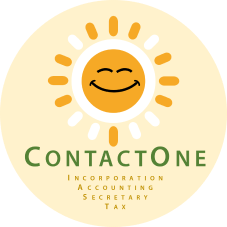Among the various decisions involved in company incorporation in Singapore, selecting the right type of business structure—or legal entity—is imperative. This choice influences your tax liabilities and shapes your company’s public image and perception among clients and suppliers. It also determines the volume of required paperwork, your liability, your capacity to secure loans, and your potential for business expansion.
This blog summarises the different business entities available in Singapore and their distinct characteristics. Each entity type is governed by specific regulatory and tax frameworks that reflect its organisational structure and ownership.
Here are the primary types of business entities in Singapore:
-
-
Private Limited Company
According to the Accounting and Corporate Regulatory Authority (ACRA) incorporation of company, a private limited company is a limited liability company (LLC) with fewer than 50 shareholders whose shares are not publicly traded. In Singapore, most privately incorporated businesses opt for this structure. The name of a private limited company typically concludes with “Private Limited” or “Pte Ltd.” Shareholders of a private limited company can be individuals, corporate entities, or a combination of both.
Regarded as Singapore’s most sophisticated, adaptable, and expandable business structure, the private limited company is often the preferred choice for committed entrepreneurs over alternatives like sole proprietorships or limited liability partnerships. Consult any company incorporation services in Singapore provider for additional insights into private limited companies.
-
Reasons Entrepreneurs opt for a Private Limited Company
-
-
Separate Legal Identity
A private limited company possesses its own distinct legal identity, separate from its shareholders and directors. It can acquire assets, incur debt, enter contracts, and initiate or face lawsuits in its name.
-
Limited Liability
The liability of the members for the company’s debts is confined to the amount they have each agreed to contribute as capital to the company.
-
Perpetual Succession
The company’s continuity is independent of the participation of any individual members. The ease with which shares can be transferred or shareholder changes can occur ensures the incorporated company’s survival even if shareholders or directors pass away, resign, or become insolvent.
-
Ease of Raising Capital
Securing additional capital for expansion or other purposes is possible by attracting new shareholders or issuing more shares to existing ones. Investors often prefer investing in companies that separate personal and business assets. More so, banks are more inclined to lend to limited companies.
-
Credible Image
As an entity that underwent company incorporation services in Singapore, a private limited company projects a more professional image than a sole proprietorship or partnership, making it more appealing to investors, potential clients, suppliers, bankers, and other professionals you may engage with.
-
Ease of Transfer of Ownership
The ownership of a company can be transferred, either in whole or in part, without disrupting operations or necessitating complex legal documentation. This can be facilitated through the sale of shares or by issuing new shares to additional investors.
-
Tax Benefits and Incentives
A private limited company in Singapore is highly tax efficient, especially with the help of accounting services in Singapore. The effective corporate tax rate for profits up to SGD 300,000 is below 9%, capped at 17% for profits exceeding this amount. Additionally, there is no capital gains tax. Under Singapore’s single-tier tax system, once income is taxed at the corporate level, dividends can be distributed to shareholders free of tax.
-
-
Public Limited Company
A public limited company is a limited liability company (LLC) permitted to sell shares to the general public. This incorporated company requires a minimum of 50 shareholders and is governed by considerably stricter regulations due to its ability to raise capital from the public. Typically, a public limited company is listed on a stock exchange. This article does not cover public limited companies as they are generally suitable for larger enterprises.
The stringent regulatory environment for public limited companies includes mandatory disclosure norms and financial reporting standards to protect public investors. These companies must publish their financial statements annually to provide transparency and uphold investor confidence.
Moreover, they must hold annual general meetings (AGMs) where shareholders can vote on important company matters, including appointing directors. Such requirements ensure that an incorporated company, like a public limited company operates, under a higher level of scrutiny, thereby safeguarding the interests of the public and the financial markets.
-
Public Company Limited by Guarantee
A public company limited by guarantee is a specific business structure designed for non-profit objectives. It is particularly suited for organisations that undertake activities for the community’s benefit without intentions of profit distribution. This structure allows these entities to enjoy the perks of corporate status, such as improved credibility and legal capacity to administer funds and property.
This entity is ideal for clubs, associations, and charitable organisations that require legal personality but do not intend to generate profits for distribution to their members. Incorporated companies limited by guarantee do not have shareholders but instead have members who act as guarantors.
The guarantors agree to contribute a predetermined nominal amount towards the company’s debts should the company be wound up. This structure gives the company the flexibility to conduct legal activities, enter contracts, and own assets while limiting the financial liability of its members.
In Singapore, ACRA incorporation of company limited by guarantee involves rigorous compliance with specific regulations to maintain transparency and accountability. This includes requiring such companies to submit annual returns and financial statements audited by qualified auditors. These requirements ensure the company remains focused on its non-profit missions and operates with integrity and financial prudence. It is crucial for maintaining public trust and securing funding from donors and grants.
-
Choosing the Right Business Structure in Singapore
Selecting the appropriate business entity is a pivotal decision in the journey of company incorporation in Singapore, directly influencing operational dynamics, fiscal responsibilities, and long-term strategic flexibility. From the robust, scalable model of a private limited company to the specialised framework of a public company limited by guarantee, Singapore offers a regulatory environment that supports a broad spectrum of business endeavours.
All in all, understanding these options helps make an informed choice that aligns with one’s business goals and investment plans. Whether you are a local entrepreneur or a foreign investor, comprehending the nuances of each business structure, from tax benefits and compliance requirements to the ease of raising capital and transferring ownership, can significantly impact an incorporated company’s operational efficacy and public perception.
As such, prospective business owners should consider consulting with legal and financial experts to navigate these choices effectively, ensuring that their selected entity meets their current needs and accommodates future growth and changes within the dynamic Singaporean market.
Secure Your Business Future in Singapore
Ready to take on company incorporation in Singapore? Navigating the complexities of choosing the right business entity is a critical step that can define the trajectory of your enterprise. Start now by consulting with experienced professionals at ContactOne who can provide tailored advice and ensure that your business complies with local regulations and is positioned for sustainable growth and success. Call us at +65 8666 3633 or send an email to [email protected] today.







